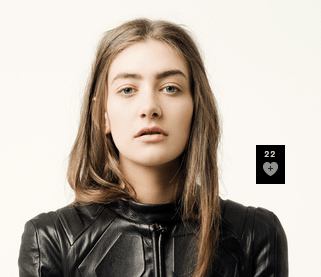Over the last couple of years a new trend amongst startups has been towards addressing incumbent industries. And there are few such traditional sectors as the world of fashion. Hence we’ve seen a great deal of activity in the space. We’ve seen the rise of apps to measure our bodies for clothes and personalise our fashion shopping experience. We’ve even seen fashion startups start to acquire each other. And tech is merging with fashion – heck, even models are starting to wear Google Glasses on the catwalk.
What the heck is going on? Well I’ll tell you: the disruption and transformation of an entire industry. Software is definitely eating this particular world. The latest symptom of this fever is the news that VC Index Ventures plans to offer up $50,000 to find the next hot little number.
This will be prize money in the form of a convertible note for the winning startup at the Decoded Fashion London event in November. It’ll be the first European event of its kind after starting in New York this year. Ten startups will pitch at the event, which unusually will have both tech and fashion media at the event, including TechCrunch. Also during the event the British Government – mindful that London is a fashion Mecca – is also planning to hand out awards to fashion tech companies. And it’s interesting that an event like this can attract the likes of Facebook, other VCs such as Advent Venture Partners and Tumblr.
Meanwhile, back in London fashion startups continue to proliferate, with the likes of EDITD, Lyst and WIWT making increasingly bigger waves.
However, it’s not all been plain sailing. Recently Lookk (a startup out of Vienna which secured funding in London and scaled up) hit a rocky patch when it lost its CEO and co-founder Tamas Locher after realising the problem it was tackling was going to be a lot bigger (though the company is continuing under the other founders).
Lookk allows upcoming fashion designers to cut out the traditional network of buyers and sell clothes straight to consumers and actually making them as well.
But all successfully monetizing formulas so far in fashion – in contrast to Lookk – have been top-down approaches, as fashion has always been.
As Locher said in a farewell email to friends and the press, the pace of transformation was much slower than they had thought. “We were searching for an explosive formula on the intersection of social and e-commerce. We saw incremental positive effect of social on transactions but in our case they have certainly not been explosive,” he wrote.
There is no doubt fashion startups are definitely the new black. But there will clearly be a few discontinued lines in the future.
